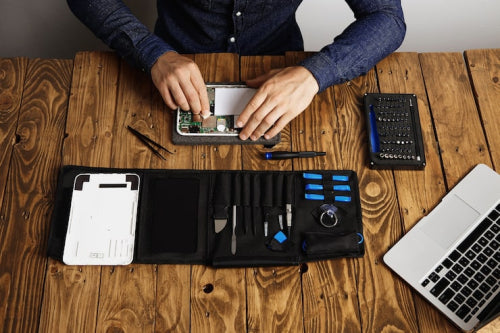
Samsung, Lenovo, and LG Cement Roles as Enterprise Hardware Mainstays
Quick Listen:
In an era where businesses must adapt at breakneck speed, enterprise hardware has become the linchpin of operational success. Three industry titans Samsung, Lenovo, and LG have cemented their dominance in this critical market, redefining how U.S. companies operate, innovate, and compete. From cloud-optimized systems to AI-enhanced devices, these companies are not merely meeting the demands of modern enterprises they're shaping the future of work itself.
Struggling with fragmented IT procurement that delays projects and spikes costs? Since 2003, Eye-In Technologies has streamlined tech sourcing with 10,000+ trusted products from Lenovo, Samsung, and more. Our intuitive platform and expert-curated solutions, like digital signage and WiFi, optimize workflows for enterprises. Source smarter, cut expenses, and boost efficiency with competitive pricing. Shop Now!
Samsung, Lenovo, and LG: Pioneers of Enterprise Hardware Leadership
The U.S. enterprise hardware market thrives on the need for agility, security, and scalability. As businesses grapple with hybrid work environments, edge computing demands, and the rise of artificial intelligence, Samsung, Lenovo, and LG have emerged as indispensable allies. Their solutions power industries ranging from retail to finance, delivering hardware that is both versatile and resilient. What sets these giants apart in a fiercely competitive landscape? Their ability to anticipate market shifts and deliver forward-thinking tools that empower businesses today while preparing them for tomorrow's challenges.
Trends Redefining Enterprise Hardware
The migration to cloud-based systems has upended traditional hardware requirements. Businesses now demand devices that integrate seamlessly with cloud platforms, enabling real-time data access and collaboration across distributed teams. Samsung, Lenovo, and LG are at the forefront of this shift, crafting hardware tailored for hybrid work and edge computing. Lenovo's ThinkSystem servers, for instance, are engineered to manage the intense demands of cloud-heavy workloads, allowing enterprises to scale operations effortlessly.
Artificial intelligence is another transformative force. As AI reshapes workflows through predictive analytics and automation, hardware must evolve to keep pace. Samsung embeds AI capabilities into its enterprise displays, enabling smarter inventory tracking for retailers. Lenovo's AI-optimized workstations have become essential for U.S. data scientists, accelerating complex computations. LG's high-resolution monitors support AI-driven design tools, empowering architects and engineers to visualize intricate projects with unparalleled clarity.
Sustainability is no longer a buzzword it's a business imperative. With growing regulatory pressures and corporate ESG commitments, these companies are prioritizing energy-efficient designs. Lenovo incorporates recycled materials into its ThinkPad line, reducing environmental impact without compromising performance. LG's displays, designed for low power consumption, align with corporate sustainability goals, offering businesses a competitive edge in a market that increasingly values green innovation.
Real-World Applications Driving Transformation
Samsung's enterprise solutions are revolutionizing logistics and retail. Its Smart Signage and IoT-enabled displays deliver real-time inventory updates in U.S. warehouses, slashing errors and boosting efficiency. In one logistics hub, these displays have streamlined supply chains, ensuring goods move swiftly despite global disruptions. Retailers, too, benefit from Samsung's technology, using interactive displays to enhance customer experiences and drive sales.
Lenovo's ThinkPad and ThinkSystem portfolios are tailored for enterprise needs, particularly in high-stakes industries like finance. U.S. financial institutions rely on Lenovo's robust security features, such as encrypted storage and biometric authentication, to safeguard sensitive data. In an age of escalating cyber threats, these tools provide a critical layer of protection, earning Lenovo a reputation as a trusted partner in industries where security is paramount.
LG's innovations in visual technology are equally impactful. Its professional displays and advanced monitors are staples in U.S. financial institutions and educational settings. On trading floors, LG's high-resolution screens deliver the clarity needed for split-second decisions. In universities, customizable displays enable professors to create immersive virtual classrooms, bridging the gap between in-person and remote learning. These solutions are more than tools they're catalysts for productivity and innovation.
Overcoming Market Challenges
Despite their dominance, Samsung, Lenovo, and LG face significant obstacles. Semiconductor shortages and global supply chain disruptions continue to hamper hardware availability, creating delays and inflating costs for U.S. businesses. These challenges force companies to rethink procurement strategies, even as these tech giants leverage strategic partnerships to mitigate disruptions. However, the global nature of supply chains means no company is entirely immune.
Security remains a critical concern as cyber threats grow more sophisticated. LG addresses this through its GATE technology, which provides government-grade security for mobile devices, ensuring a safe and efficient work environment for corporate IT teams and employees. This focus on security is vital as businesses increasingly rely on mobile and remote solutions to stay competitive.
Cost is another hurdle. Premium hardware from these companies often carries a high upfront price, which can strain budgets, particularly for smaller enterprises. The hardware-as-a-service (HaaS) model offers a compelling solution. As noted in a Fortune Business Insights report, HaaS enables businesses to flexibly scale hardware resources, adapting to changing needs without the financial burden of purchasing or disposing of equipment. This model is a game-changer for companies navigating tight budgets or unpredictable growth.
Unlocking Efficiency and Opportunity
The innovations from Samsung, Lenovo, and LG deliver measurable benefits for U.S. businesses. Samsung's IoT displays reduce retail downtime by automating inventory processes, while Lenovo's AI-optimized workstations accelerate data analysis for research firms. LG's visual solutions enhance collaboration in hybrid work environments, making virtual meetings more effective. These advancements streamline operations, minimize downtime, and drive productivity across industries.
Scalability is a cornerstone of their value proposition. The HaaS model, as highlighted by Fortune Business Insights, allows businesses to adjust hardware inventories in real time, ensuring access to enterprise-grade tools without excessive capital expenditure. Startups can leverage cutting-edge technology to compete with larger players, while established firms can scale down during lean periods, optimizing costs and resources.
Looking forward, these companies are investing in future-proof solutions. Samsung's 5G-enabled devices promise faster, more reliable IoT ecosystems, critical for industries like logistics. Lenovo's modular designs simplify upgrades, extending the lifespan of hardware investments. LG's exploration of autonomous technologies, such as self-calibrating displays, points to a future where hardware adapts dynamically to user needs. These innovations ensure U.S. businesses remain agile in a rapidly evolving landscape.
Charting the Path Forward
Samsung, Lenovo, and LG are more than hardware providers they're architects of transformation. Their solutions empower U.S. businesses to navigate complex supply chains, secure sensitive data, and embrace emerging technologies like AI and 5G. Industry analysts view these companies as trailblazers, with their focus on sustainability and scalability setting the standard for the enterprise hardware market. For U.S. companies, the choice is clear: partnering with these giants means investing in tools that evolve with the times. In a world defined by disruption, Samsung, Lenovo, and LG are building the foundation for success, one innovative device at a time.
Frequently Asked Questions
Why are Samsung, Lenovo, and LG considered the top enterprise hardware providers in 2025?
Samsung, Lenovo, and LG have cemented their positions as enterprise hardware leaders by anticipating market shifts and delivering forward-thinking solutions for modern business challenges. These companies excel in cloud-optimized systems, AI-enhanced devices, and hybrid work environments, with Samsung's IoT displays revolutionizing logistics, Lenovo's ThinkSystem servers managing cloud workloads, and LG's professional displays enhancing collaboration across industries.
How do these enterprise hardware giants address AI and cloud computing demands?
Samsung, Lenovo, and LG have strategically integrated AI capabilities and cloud compatibility into their enterprise solutions. Lenovo's AI-optimized workstations accelerate data analysis for research firms, Samsung embeds AI into enterprise displays for smarter inventory tracking, and LG's high-resolution monitors support AI-driven design tools. Their hardware is specifically engineered to handle cloud-heavy workloads and enable real-time data access across distributed teams.
What challenges do Samsung, Lenovo, and LG face in the enterprise hardware market?
Despite their market dominance, these companies face significant obstacles including semiconductor shortages, global supply chain disruptions, and escalating cybersecurity threats. To address cost concerns for smaller enterprises, they're leveraging hardware-as-a-service (HaaS) models that allow businesses to scale resources flexibly without large capital expenditures. LG's GATE technology and Lenovo's encrypted storage features demonstrate their commitment to addressing security challenges in an increasingly threat-heavy environment.
Disclaimer: The above helpful resources content contains personal opinions and experiences. The information provided is for general knowledge and does not constitute professional advice.
You may also be interested in: Top Digital Signage Trends for 2025: What Businesses Need to Know
Struggling with fragmented IT procurement that delays projects and spikes costs? Since 2003, Eye-In Technologies has streamlined tech sourcing with 10,000+ trusted products from Lenovo, Samsung, and more. Our intuitive platform and expert-curated solutions, like digital signage and WiFi, optimize workflows for enterprises. Source smarter, cut expenses, and boost efficiency with competitive pricing. Shop Now!
Powered by flareAI.co





